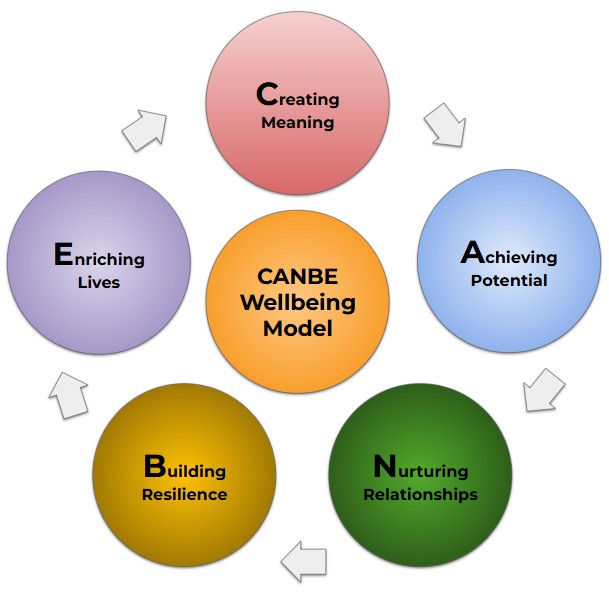Common wellbeing mistakes holding us back
- Apr
- 05
- Posted by David Green
- Posted in Uncategorized
- 0
Are any of these common wellbeing mistakes holding you back?
Whether approaching this as an individual, team or organisation people are increasingly seeing the benefits of greater wellbeing. Purpose, focus, resilience, confidence, strong relationships and good health all make for better performance and better lives.
However there is less agreement on how wellbeing is defined and this is leading to some common mistakes which include the following:
Confusing wellbeing with happiness
Wellbeing is often associated with happiness and yet they are different. The danger here is we become too focused on chasing happiness. Happiness is an emotion and no-one is happy all of the time. Wellbeing is a longer term state that includes both happy and sad times. To improve wellbeing we can become better at managing our emotions to deliver more positive outcomes.
An imbalanced emphasis on physical health
Exercise is a key habit and can have a big influence on many other areas of life. If we exercise regularly it can help improve diet, sleep, stress and many other areas that impact on our wellbeing. However just because we exercise it doesn’t mean we will have much better overall wellbeing. Obviously health and happiness are core components of wellbeing but they are not the full picture.
Focusing only on problems and weaknesses and not opportunities and strengths
‘Only 25% of people suffer from a mental health problem’. That’s a statistic I’ve seen, and used myself. This means that the other 75% won’t suffer from a mental health problem. Whilst we should most definitely cater from those who need support for poor mental health we should also ensure that we support those with good mental health to stay well and get even better.
However, there’s a real danger that wellbeing in the workplace is overly focused on the 25%. We encourage all people to improve their physical health so shouldn’t we do the same with mental health. On a personal level perhaps we’re too focused on our weaknesses and haven’t thought enough about our strengths. A good approach to wellbeing considers both problems and opportunities.
Focusing too ‘inwardly’
Wellbeing is not just about you or the people in your organisation. It is also about ‘others’ and the world outside of your organisation. One of the biggest contributors to our wellbeing is when we help or give to someone else. We should also remember that wellbeing extends to the planet we call home and the resources it provides to us. Without these we won’t have any wellbeing! Trying doing more for others and see how that makes you feel.
A better way forward
Whether you are an individual who would like to improve personal wellbeing or the person responsible for managing wellbeing in your organisation, the following points will help you achieve more from your efforts.
- Be clear on our definition of wellbeing. Here’s an article that explores this further.
- We should consider mental, emotional, physical, social, spiritual, cultural, environmental and economic domains in our approach to wellbeing.
- Think about building on strengths and developing opportunities as well as addressing weaknesses and problems.
- Think ‘we’, ‘you’ and ‘us’ as well as ‘me’ and ‘I’.
Ready to unlock your full potential? Let’s start the journey together.
Try our dashboards to find out where you are on your wellbeing journey right now! Each takes about 5 minutes, is completely free and delivers instant personalised results.
Wellbeing Mastery for Leaders Dashboard – Assess your personal wellbeing across the eight domains.
Wellbeing Designed Organisations Dashboard – Measure how well your organisation contributes to wellbeing
Our Services
Wellbeing Designed Organisations – A mastermind group and workshop for visionary leaders who want to put wellbeing at the centre of organisational design.
Wellbeing Mastery for Leaders – a 1:1 coaching programme that delivers personal development and organisational impact. The unique, holistic approach, based on the interconnected wellbeing domains, sets this programme apart from standard leadership development. Through the coaching you develop your own unique way forward.
Thriving – a 1:1 coaching programme for professionals seeking greater fulfilment in life, recovery from burnout or stress, better balance, personal growth and improvement.
Topic based coaching – 1:1 coaching focused on career, confidence building, stress management, time management and team management.
Team coaching – Tailored sessions to improve team performance
Speaking – tailored presentations, talks, keynotes and workshops designed to educate, inform and inspire.
Read
The Age of Wellbeing – A new leadership model for a happier world for a new perspective on how organisations can contribute to the challenges and opportunities we face in our modern world.

